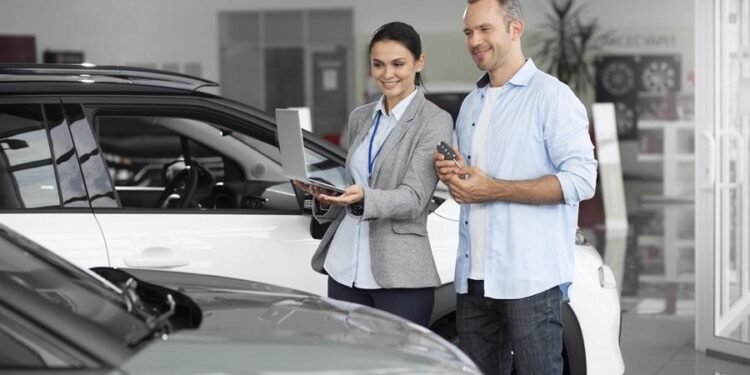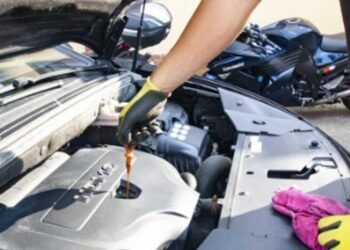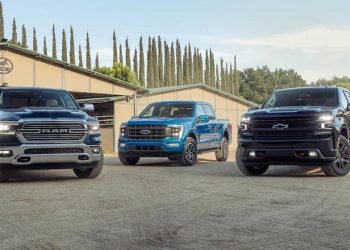There’s this common belief that people only buy used cars because they lack the financial resources to purchase a brand-new vehicle. While it’s true that many choose this option due to financial constraints, it’s not always the main motivation. There are plenty of people who can afford a new car without making any sacrifices but prefer to buy used instead.
For some, this choice might seem incomprehensible. Why go down this path when you have the money to buy a shiny new car that just rolled off the production line? After all, isn’t an unused item better and sturdier than one that has already experienced wear and tear?
The simple answer is that driving a second-hand car is not always a compromise as many might think. In fact, purchasing a used vehicle is the wise thing to do, for a variety of reasons that we’re going to present and expand on below.
Dealing with depreciation
Since cars represent a major purchase, they’re generally seen as valuable assets. This means you can sell them for quite a considerable amount of money if they are kept in good condition. However, cars are definitely not an investment, but an expense or rather a depreciating asset, in accounting terms, because their value goes down in time, with the only exception to this rule being rare collectibles.
While vehicles depreciate at different rates based on various factors such as make, model, and market demand, new cars depreciate much faster than used ones. It’s estimated that new vehicles lose between 6 to 45% of their value within the first year, with the steepest drop in value happening immediately after purchase.
Why spend your hard-earned money on a new car that starts losing value the moment you drive it off the lot when you could buy a used car that has already gone through its steepest depreciation and comes at a much lower price? Pre-owned cars not only depreciate slower but also offer better value for money. Several dealerships provide a wide selection of reliable and affordable used vehicles, including medinacdjr.com and other trusted options. Many of these dealers also provide vehicle history reports, inspection certificates, and warranties, giving you peace of mind and confidence in your purchase. By choosing a reputable dealership, you can enjoy the benefits of a dependable car without the steep cost of a brand-new model.
Lower insurance
Insurance is without a doubt one of the biggest expenses associated with owning a car. Given that having valid vehicle insurance is required by law, this is not an expense you can put off or ignore unless you want to deal with hefty penalties.
However, there are ways to pay less for your car insurance, and purchasing second-had is a clever way to lower costs. Both new and used cars are evaluated by insurance companies based on the same criteria. This implies factors such as make, model, mileage, condition, depreciation, and accident history.
So, there’s no difference between insurance for used and new automobiles. But used cars are cheaper to insure for the mere reason they cost less. Typically, the more valuable a car is, the more you’ll have to pay for insurance. High-value cars are more expensive to repair or replace, and they are also at a greater risk of being stolen or vandalized which drives insurance rates up.
Wider selection
If you’re in the market for a new car, your options might be limited because of your budget. You might not have the money to buy a certain car if it’s new, but you can probably afford the same model if you buy it used. This gives you the opportunity to stretch your money further and purchase the car of your dreams without making a huge financial effort. Moreover, considering the options in many locations, such as North Hollywood and its surrounding areas, can also broaden your choices. However, if you’re a North Hollywood resident and are not looking to spend a lot of money on new branded cars and your used car needs repair, selecting the best auto body repair in North Hollywood ensures dependable assistance, providing peace of mind throughout the process.
Apart from saving money and finding better deals for the cars you’re interested in, the pre-owned car market also opens the door to more options. When buying new, you only have access to the models that are currently being produced and available for sale. On the other hand, when you’re willing to look into second-hand cars as well, you benefit from a much wider variety of models.
This means you still have a chance to get your hands on a specific car even if the model has been discontinued by the carmaker. And if you want to make sure the cars you’re considering are in proper shape, you can check https://carvitas.com/ for reliable diagnostic tools and equipment.
Protect the environment
Environmental protection might not be the first thought that comes into people’s minds when looking to buy a car. But if getting behind the wheel of a brand-new car is not high on your list of priorities and you care more about the planet than about fleeting and frivolous things, purchasing a pre-owned vehicle is a great way to reduce your carbon footprint.
Cars represent a major source of pollution, but since they have become an indispensable part of our lives, buying second-hand cars is the least harmful option. When used cars re-enter the market it reduces the use of raw materials and the carbon emissions associated with producing new cars. Obviously, fuel efficiency and technology also factor in, so a pre-owned car is more eco-friendly as long as it checks these two boxes.
Enjoy peace of mind
A common misconception about buying used cars is that they are not reliable. that might have been the case in the past, but nowadays things have changed a lot due to tech advances. Buyers can now look into a vehicle’s history report and learn all about its ownership, accident and repair history, mileage, and so on.
On top of that, one can also use an OBD scanner from iCarsoft to gain insights into the health of the vehicle and evaluate its overall condition. And if you are still concerned about bumping into unexpected issues, you also have the possibility to purchase certified pre-owned cars. These used vehicles have been thoroughly inspected to meet manufacturer’s standards and come with a warranty, providing more peace of mind for buyers.
As you can see, buying a used car is a great way to save money and enjoy a variety of other benefits such as less vehicle depreciation and lower insurance rates, so it’s definitely an option to take into consideration.












